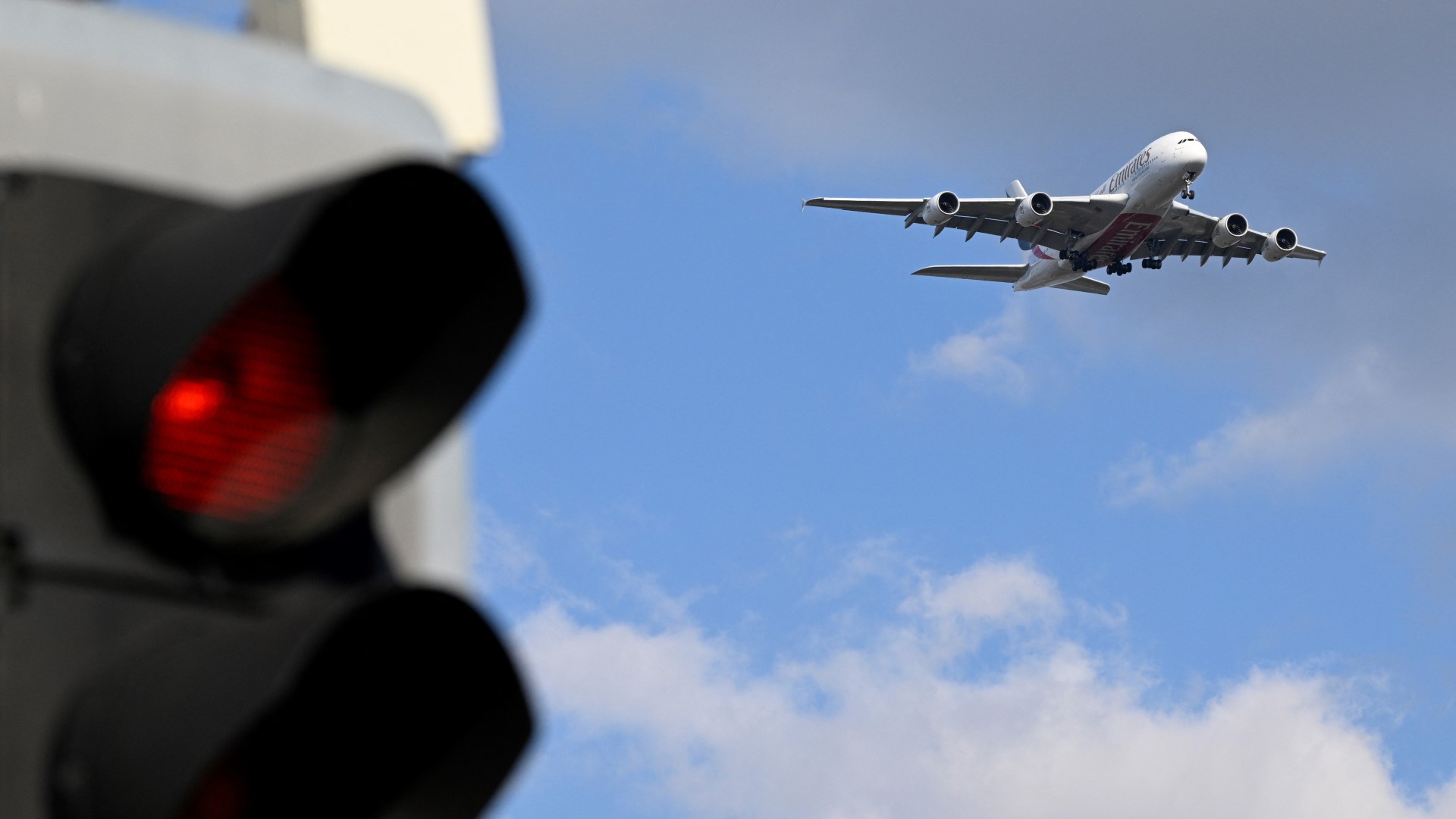Incendiary device plot: Russia's 'rehearsals' for attacks on transatlantic flights
Security officials warn of Moscow-backed 'sabotage campaign' in retaliation for continued Western support for Ukraine

A free daily email with the biggest news stories of the day – and the best features from TheWeek.com
You are now subscribed
Your newsletter sign-up was successful
Western security officials believe a series of incendiary devices that started fires in British and German warehouses over the summer were "dress rehearsals" for a potential Russian attack on transatlantic flights.
The Wall Street Journal (WSJ) reported that devices – disguised as electric massage machines from Lithuania, containing a highly flammable "magnesium-based substance" – that ignited at DHL logistics hubs in Leipzig and Birmingham in July were part of a "covert Russian operation" that ultimately aimed to start fires aboard cargo or passenger aircraft flying to the US and Canada.
It comes as Moscow "steps up a sabotage campaign against Washington and its allies", said the WSJ, in retaliation for the West's continued support for Ukraine.
The Week
Escape your echo chamber. Get the facts behind the news, plus analysis from multiple perspectives.

Sign up for The Week's Free Newsletters
From our morning news briefing to a weekly Good News Newsletter, get the best of The Week delivered directly to your inbox.
From our morning news briefing to a weekly Good News Newsletter, get the best of The Week delivered directly to your inbox.
Who is behind the plot?
The explosions set off a huge international manhunt. Polish authorities have confirmed that four people have been arrested under suspicion of being involved in international sabotage, while another man, who is suspected to have posted the parcels from Lithuania and tried to conceal his identity by giving false return addresses, was arrested in September.
The official Polish statement does not list the suspects or group by name. But Pawel Szota, the head of Poland's foreign intelligence agency, was clear that Russian spies were to blame. He told the WSJ: "I'm not sure the political leaders of Russia are aware of the consequences if one of these packages exploded, causing a mass casualty event."
Szota's comments "echo" those from other Western intelligence officials, "indicating that Russia, and specifically its military-intelligence agency, known as the GRU, was responsible".
What has Russia said?
There is a belief among some Western officials that "a plan to bring down an aircraft flying from Europe to North America, with significant potential for escalation, could only have been approved by the highest levels of the Russian government", said The Times.
A free daily email with the biggest news stories of the day – and the best features from TheWeek.com
However, Kremlin spokesperson Dmitry Peskov has denied any Russian involvement. He said that no European government had yet formally accused Moscow of staging the fires, describing the latest reporting as "traditional unsubstantiated insinuations from the media".
What is the next move?
Security officials across Europe are "on edge" about the increasing volume of Russian-sponsored acts of sabotage, said The Times. These are "often commissioned by Moscow's spy agencies but carried out by local 'single-use' proxies".
CNN reported in July that Russia has been engaged in a "bold" sabotage operation across Nato member states for more than six months, aimed at weakening the war effort in Ukraine, The US broadcaster has now described a threat that is "metastasizing as Russian agents, increasingly under scrutiny by security services and frustrated in their own operations, hire local amateurs to undertake high-risk, and often deniable, crimes on their behalf".
These proxies are believed to be behind arson attacks in the UK and the Czech Republic, the targeting of pipelines and data cables in the Baltic and tampering with water supplies in Sweden and Finland.
They also include a botched assassination attempt on Leonid Volkov, a prominent exiled Russian dissident in Vilnius, and plots to kill Ukrainian President Volodymyr Zelenskyy and the chief executive of Rheinmetall, the German armaments giant that supplies Ukraine.
The Guardian reported that British police and officials, as well as their European counterparts in Germany, Poland and Lithuania, "strongly suspect" that Russia was behind the incendiary attacks in July, "in retaliation for western military support to Ukraine".
Last month, Ken McCallum, the head of MI5, warned that Russia's GRU military intelligence appeared to be on "a sustained mission to generate mayhem on British and European streets" by means of "arson, sabotage and more".